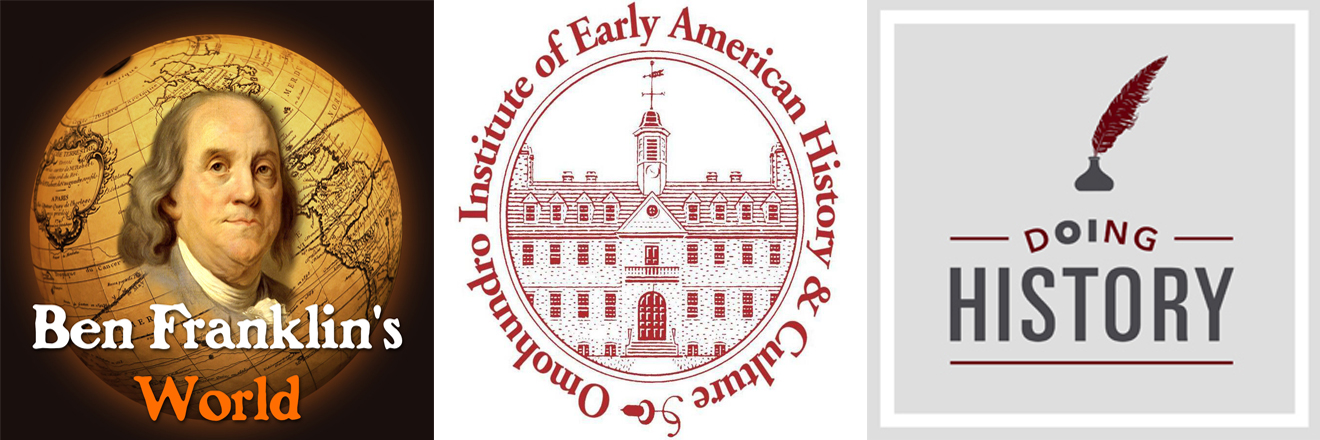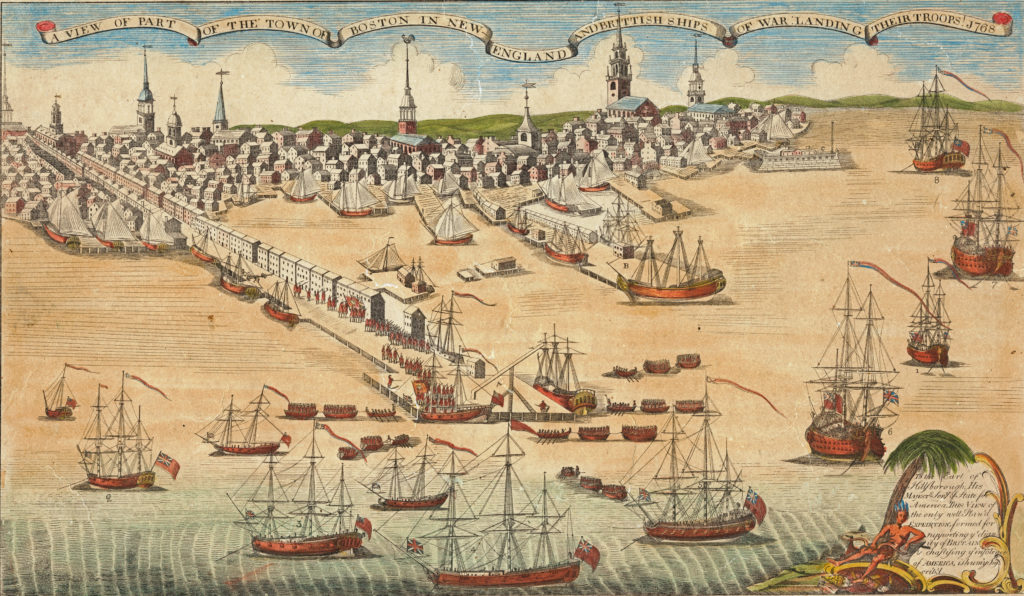I’m excited to announce that I’ve joined the staff at the Omohundro Institute of Early American History and Culture as its new Digital Projects Editor. This is a really exciting opportunity because it means long-term support for Ben Franklin’s World and the Doing History series and a chance to continue working and collaborating with the OI’s great staff of talented historians and professionals.
Over the last two years, the team at the Omohundro Institute has helped develop Ben Franklin’s World into a serious and professional media outlet for scholarly history. Their knowledge has played a major role in growing Ben Franklin’s World into a podcast that receives over 160,000 downloads per month and has garnered more than 2 million downloads in less than 3 years. Plus, the Doing History series has evolved into a dynamic series that not only shows the world how historians work and why our work matters, but encourages us to experiment with adapting our traditional modes of historical interpretation and communication to new media. (Thus far these experiments have proven successful as episodes in the Doing History: To the Revolution! series are the most downloaded episodes in the entire BFWorld catalog.)

It’s also an exciting opportunity because the Omohundro Institute is the preeminent organization in the world for early American historical scholarship. They do so much to support the work that we historians do through their fellowship and publication programs, conferences, and digital history initiatives and by challenging themselves and others to produce the best scholarship in the field. And now, Ben Franklin’s World and I get to be a BIGGER part of that work.
Going forward, listeners can still expect great interviews with scholars who work on different aspects of early American History. Episodes will continue to post on Tuesdays, just as they have been for over two and a half years, and listeners can also expect more multi-part series with narrative-style episodes.
For nearly 75 years, the Omohundro Institute has been committed to producing the best scholarship in early American history and I’m really looking forward to meeting the challenge of producing episodes that meet their high standards as well as the high standards the Ben Franklin’s World and Doing History audiences have come to expect. I’m excited to contribute to the Omohundro Institute’s long tradition of excellence.

